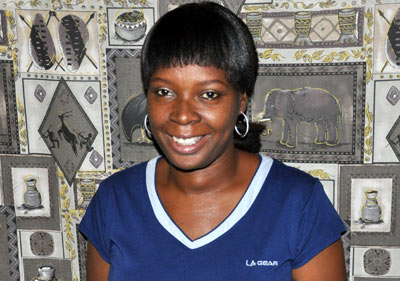Sex can be a fun, pleasurable, and fulfilling part of life, but without protection, it can lead to SexuallyTransmitted Infections (STI) and unplanned pregnancies which can have huge impact on the individual as well as their partner’s life.

As the world celebrates the World Contraception Day on every September 26 with a goal to reduce the level of unplanned pregnancies, Development Communications (DevComs) Network has declared its support for the promotion of information on the importance of contraceptives use and its contribution to control of unwanted/unplanned pregnancies, unsafe abortion and reduction in maternal mortality and morbidity.
According to the organisation, contraception prevents unsafe abortion which is a persistent, preventable pandemic and remains one of the most neglected sexual and reproductive health problems in the world today.
According to National Demographic Health Survey 2013, the prevalence rate for contraceptive use in Nigeria is only 15%. This is said to be very low in spite of the high rate of sexual activity and widespread awareness of the various contraceptive methods among Nigerian men, women, adolescent and youths.
In order to tackle the challenges of uptake of Family Planning/contraception, Nigerian Urban Reproductive Health Initiative (NURHI) Senior Technical Advisor on Advocacy, Mrs Charity Ibeawuchi, recommends “political commitment backed by adequate and sustained funding of family planning programmes by the government at all levels will create the necessary enabling environment that will result in decreasing maternal deaths and morbidity thereby increasing maternal survival, increased productivity and poverty reduction”.
“Family planning plays a major role in improving maternal, new-born and child health. Family planning helps to avoid the proven challenges that women face in pregnancy/ child birth when they are too young and too old in age and/or when pregnancies are too close and too many. Successful family planning programmes improve quality of life whilst significantly contributing to demographic dividends and national development,” she adds.
Presently, of utmost importance is the need for adequate information to correct some of the myths and misconceptions and break barriers surrounding contraceptives use in Nigeria most especially with the high rate of teenage pregnancies.
Speaking on 2017 WCD theme tagged: “It’s your life, it’s your future, know your body”, the Executive Secretary, Youth Empowerment Foundation, Mrs Iwalola Akin-Jimoh, charged teenagers, women and youths to take responsibility for their sexual and reproductive health life. She reiterated that the best for teenagers and youths is abstinence.
“Teenage pregnancy is a serious social problem. Having children at a young age can damage young women’s mental and physical health, limit their education and career prospects, and increase their risk of living in poverty and social isolation. Thus, it is important for adolescents and youths to focus on their goals and avoid distractions, there is time for everything in life,” she adds.
To government, Akin-Jimoh posits that successful reduction in teenage pregnancy will be achieved when there is an open and realistic attitude to sexuality with effective programmes on sex education and confidential contraceptive advice.
“Some adolescents are mothers and fathers already and we need to take their special needs into consideration. Young people appreciate confidentiality and youth-friendly services. As a matter of fact, lack of confidentiality are the main reasons young people will not use various reproductive health services.
“So government strategy for reduction of teenage pregnancies should include ensuring comprehensive information, counselling and support from parents, schools, health professionals and provision of easy to access youth-friendly sexual and reproductive services.”
DevComs Network’s Head of Programmes, Ikeoluwa Otudeko, calls for increase in sexual and reproductive health education and information on the various methods of contraceptives, interpersonal/peer-to-peer communication and improvements to healthcare services delivery.
